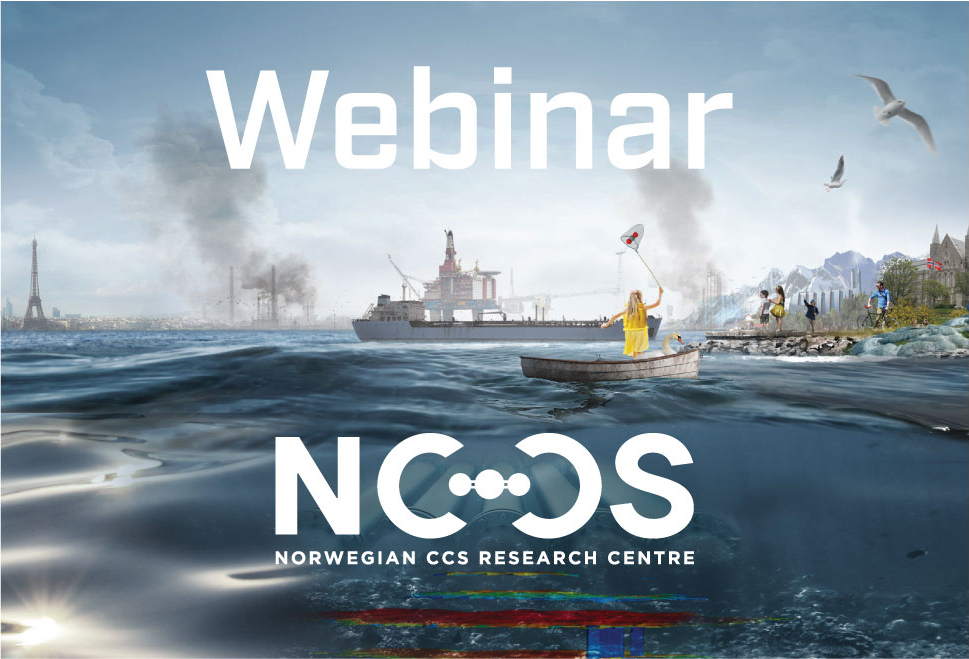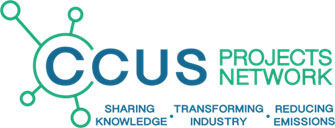|
|
|
This fall, the Norwegian CCS Research Centre (NCCS)
will host a new series of open webinars.
|

|
|
|
The webinars will present results from NCCS Research Centre activities, including affiliated projects. They will cover the whole CCS value chain from capture and transport to storage.
|
The webinars will take place primarily in the second half of October and in November, but extra sessions may be added later.
|
We will start sending out invitations in early October (as NCCS Newsletters) for the different webinars. In case you do not already receive our newsletter, sign up on this page and enter the relevant information. You will be asked to confirm your registration in a separate e-mail. You can of course cancel your subscription at any time. Alternatively, it is also possible to register directly via the NCCS event page, but then you will not receive the email invitations to future webinars.
|
Registration links are published on the event page 2-3 weeks before each webinar.
|
Even if you're unable to join the webinar live, you can access the recording later. This still requires you to register for the webinar.
|
The webinars are open to anyone, not only NCCS partners. Feel free to forward this newsletter to colleagues and friends.
|
|
We look forward to having you as a participant!
|
|
|
|

|
Hydrogen and its relation to CCUS
|
What: Public event (webinar) organized by the CCUS Projects Network
|
|
When: Tuesday, October 12th from 14:00 to 17:00 CET
|
|
Hydrogen can be used as a fuel, an energy carrier or as feedstock. It is a clean and versatile molecule that can be easily transported and stored. These characteristics make hydrogen particularly attractive as a tool for the decabonisation of the European economy by 2050. Therefore in 2020 the European Commission adopted a new, dedicated Hydrogen Strategy. Currently, most hydrogen is produced from natural gas in a process that results in emissions which need to be captured and stored. Over time, with the push for renewables, production based on water electrolysis using renewable electricity is expected to become dominant. Carbon Capture and Storage and/or Usage (CCUS) can play a crucial role as a steppingstone towards a decarbonised, hydrogen-powered economy. The event will focus on the synergies between hydrogen and CCUS and the role of CCUS for enabling the widespread use of hydrogen as a clean energy carrier.
|
Please register for the event by following the link here.
|
|
About the CCUS Projects Network:
|
Launched in May 2019, the CCUS Projects Network aims to bring together and facilitate the sharing of knowledge among major European CCS and CCU projects to:
|
- De-risk CCUS and encourage its delivery at commercial scale
- Accelerate CCUS deployment considering the urgent need for climate action
- Encourage public engagement to increase understanding of CCUS technologies
- Offer policy, regulatory and market advice to existing and potential projects
- Identify future R&D needs not already met
The Network was established, is operated and its activities are led by consultants at Trinomics, in collaboration with TNO, SINTEF, SCCS, DECHEMA and Bellona.
|
|
|
|
Welcome - Mr. Hans Bolscher, Trinomics
|
|
|
|
|
Presentation of the CCUS Projects Network - what’s the value for industry - Mr. Hans Bolscher, Project Director of the CCUS Projects Network
|
|
|
|
|
Blue Hydrogen’s Role in Decarbonization & Industrial Transformation - Mr. Atanu Mukherjee, President & CEO Dastur Energy
|
|
|
|
|
Combined hydrogen and CCS projects in Europe (presentation title TBC) - Mr. Steinar Eikaas, Vice President of Low Carbon Solutions, Equinor
|
|
|
|
|
‘Hydrogen4EU, Charting Pathways to enable net zero’ - Dr. Johannes Trüby, Director, Deloitte Economic Advisory; Director of the Hydrogen4EU study
|
|
|
|
|
Roundtable on Hydrogen and its relation to CCUS - ‘Turning talking into action’ Moderator: Mr. Hans Bolscher
|
|
|
|
|
|
|
|
Thank you for reading our newsletters.
Amy Brunsvold, NCCS Centre Manager
|
|
|
|

|
|
|
 
|
|
|
|
|
|